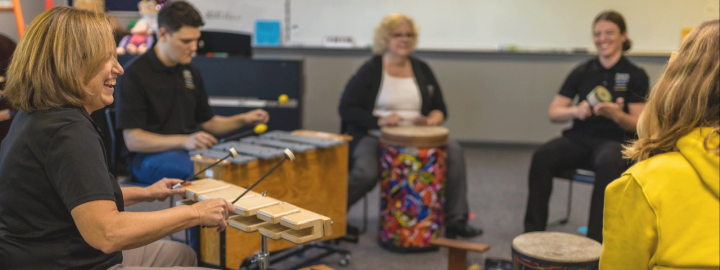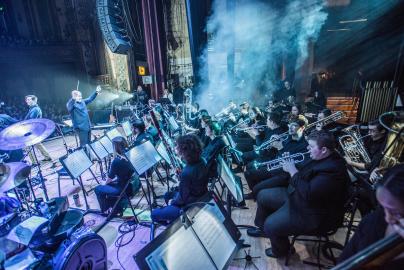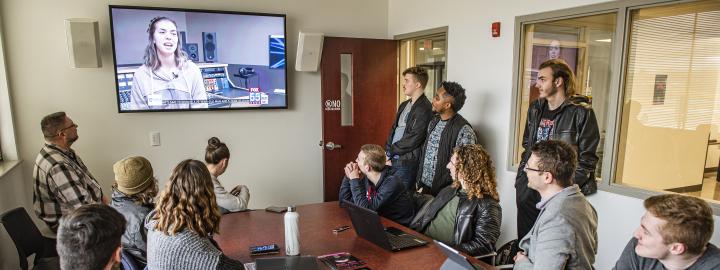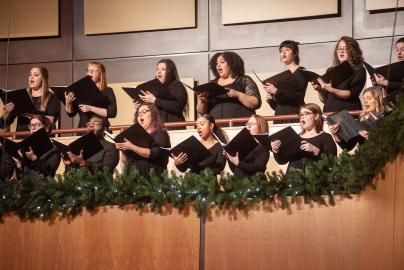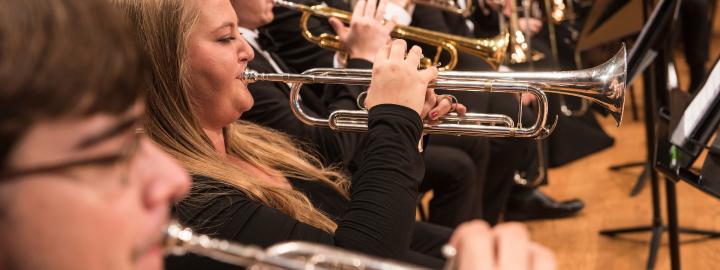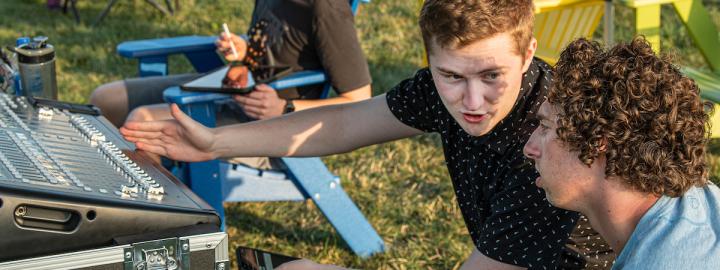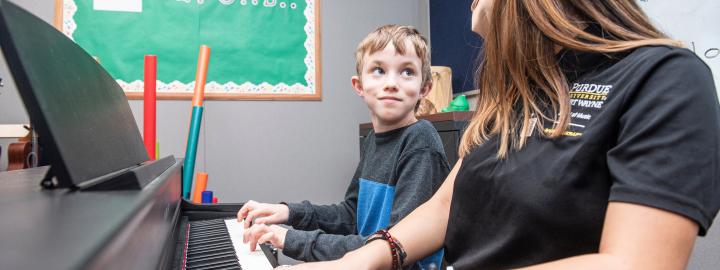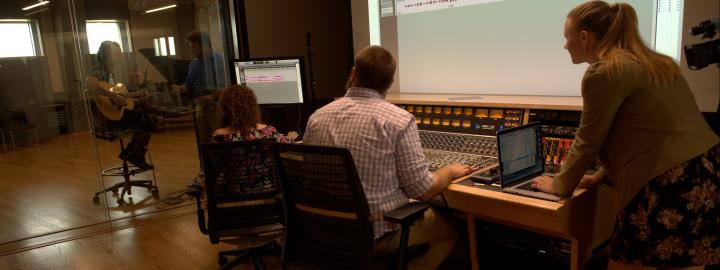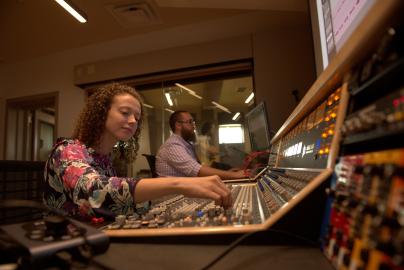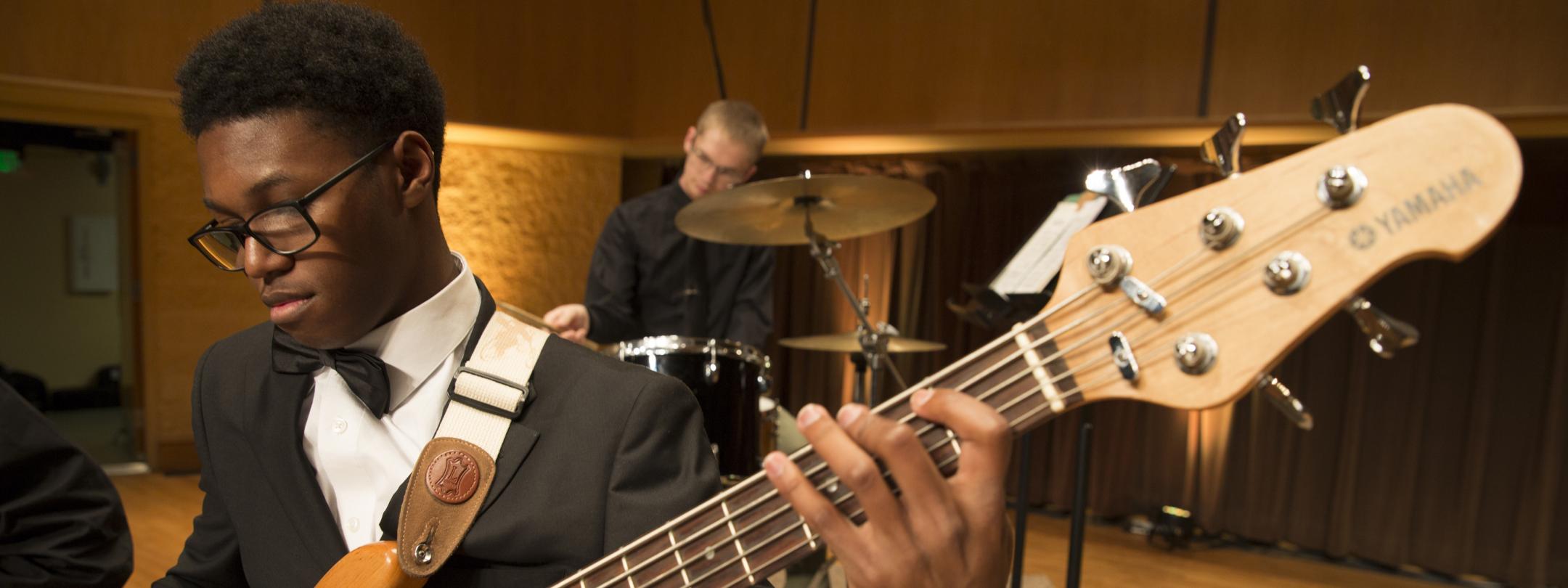
Music Programs
This is where musicians become everything they’ve dreamed.
Our degrees and minors span all realms of music, from education to performance to therapy.
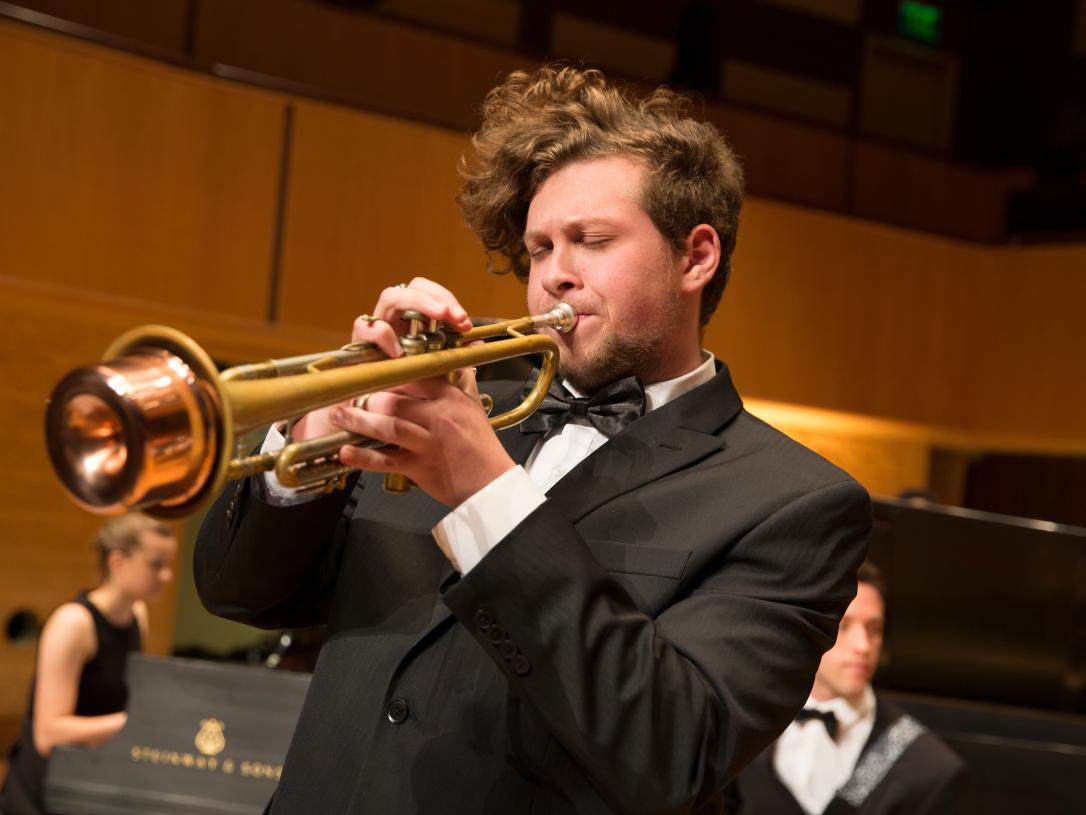
Jazz Minor
As you pursue a jazz minor, you’ll get to explore this great American genre as you take classes in improvisation, jazz history, and applied jazz lessons and ensembles, such as big band and jazz combo.

Program
Highlights
Program Highlights
- Creation, performance, and production of original music
- Perform, with a high level of artistry, as a soloist and collaborating musician
- Support from the Mastodon community
- A prestigious Purdue education
career and salary data
How far will you go?
General labor market and salary data are provided by Lightcast via O*NET and may not represent the outcomes experienced by Purdue Fort Wayne graduates in these programs. Purdue Fort Wayne graduates in these programs may earn salaries substantially different or less than the amounts listed. Salary and employment outcomes vary by geographic area, previous work experience, education, and opportunities for employment that are outside Purdue Fort Wayne’s control. Purdue Fort Wayne does not guarantee employment placement, salary level, or career advancement.
Accreditation
Purdue University Fort Wayne is an accredited institutional member of the National Association of Schools of Music and the American Music Therapy Association.
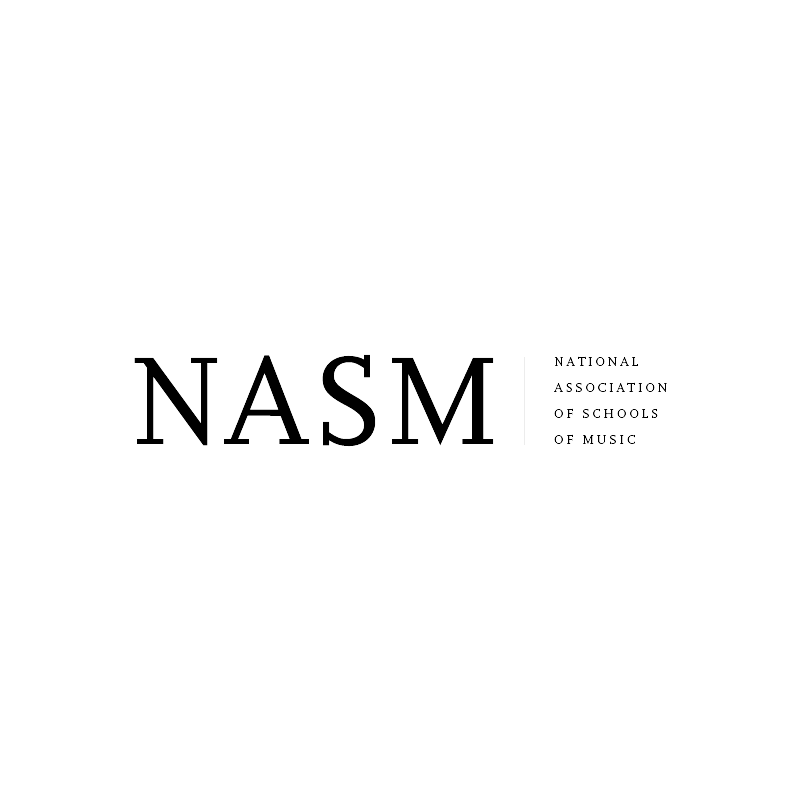
Student Learning Outcomes
Upon completion of this minor, students will be able to demonstrate the following learning outcomes:
- Demonstrate knowledge of jazz music theory sufficient to analyze musical forms, structures, and styles; to create within basic musical structures; and to relate theoretical concepts to sound
- Demonstrate performance ability as jazz ensemble members, as conductors, and as soloists on both a primary instrument and/or a secondary instrument in this idiom
- Demonstrate knowledge of the history and literature of jazz music, with an understanding of the social, political and cultural impacts which shaped its development
- Demonstrate proficiency in utilizing appropriate technology to notate and create music, to investigate and report scholarly research, and to support the specific demands of their area of focused study
- Music Producer
- Professional Performer
- Session Musician
- Songwriter/Composer
- Sound Designer

